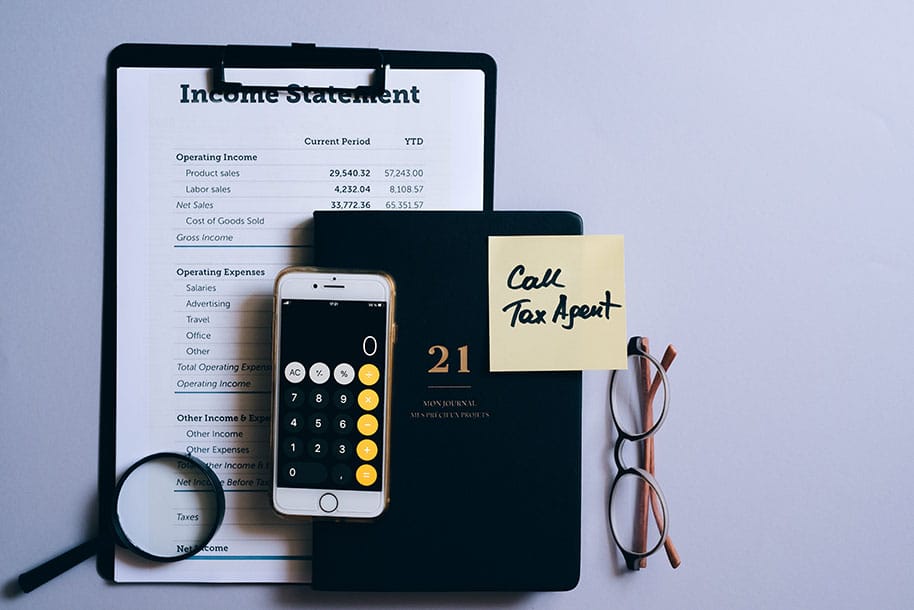What is a Tax Notice of Objection?
A tax Notice of Objection is a formal dispute filed with the Canada Revenue Agency wherein the taxpayer appeals tax amounts assessed against the taxpayer by the Canada Revenue Agency. For example, a taxpayer may argue an auditor improperly imputed taxable income on the taxpayer and improperly applied penalties. An experienced Canadian tax lawyer can file a Notice of Objection on behalf of the taxpayer.
A Notice of Objection must be filed within:
- 90 days from the day the assessment or reassessment is issued
- 90 days plus a year from the day the assessment or reassessment is issued with an extension of time request approved by the Canada Revenue Agency
- If the Notice of Objection to an income tax assessment is for the latest tax year, one year from the tax filing deadline for that tax year. (e.g. the tax filing deadline for 2020 taxes is presently April 30th The deadline to file an objection to an assessment for 2020 taxes would April 30th 2022).
Upward Adjustments Resulting from Tax Notices of Objection – For the Objecting Taxpayer
Notices of Objection are typically filed by Canadian tax lawyers with the intention of decreasing the amount of tax or penalties assessed against the taxpayer. However, in certain cases a notice of objection can result in the objecting taxpayer owing more taxes or penalties than were set out in the assessment the taxpayer is objecting to. These upward adjustments arise where, through the tax objection process, the Canada Revenue Agency learns new information that merits the upward adjustment.
The Canada Revenue Agency released some guidance on when it permits its Appeals Officers to assess an upwards adjustment. In its CRA Appeals Manual 2013-09, examples where an upwards adjustment would be appropriate were given. These included:
- Where the processor who created the tax assessment neglected to assess gross negligence penalties that the tax auditor determined were appropriate.
- A taxpayer claimed a business loss which is denied by the Canada Revenue Agency on the basis that there was no reasonable expectation of profit. The taxpayer provides sales invoices during the objection that demonstrate the loss was actually a profit. Please note that since this example was written, the Supreme Court of Canada in Stewart vs. Canada has overturned the reasonable expectation of profit test and replaced it with a two-step approach for determining whether a taxpayer’s activities constitute business.
In its 2004 annual Roundtable, the Canada Revenue Agency additionally indicated an upwards adjustment will only be processed where:
- The adjustment sufficiently relates to the subject matter of the objection
- The normal reassessment period has either not expired or there is sufficient cause, meaning misrepresentation attributable to neglect, carelessness, wilful default or fraud, to assess back further than the normal reassessment period.
- The adjustment is of “relative importance” which is a judgement of the significance of the upwards adjustment in relation to the value of the underlying disputed item.
- The upward adjustment is approved by the Chief of Appeals
Taxpayer should note much of the above are Canada Revenue Agency internal policies, not law, and may change. An exception applies to the point involving the normal reassessment period as the courts have confirmed the Canada Revenue Agency’s position in The Queen v. Anchor Pointe Energy Ltd. and other cases. The normal reassessment period allows the Canada Revenue Agency to reassess a taxpayer for a particular tax year during the three calendar years after the issuance of a Notice of Assessment for that tax year. If the Canada Revenue Agency wishes to reassess after the normal reassessment period has expired, it must prove the taxpayer has conducted misrepresentation attributable to neglect, carelessness, wilful default or fraud. Filing a notice of objection allows the Canada Revenue Agency to reassess the taxpayer past the normal limitation period, but does not permit the Canada Revenue Agency to include amounts in the taxpayer’s income which were not included in an assessment or reassessment made within the normal reassessment period or the longer reassessment period where misrepresentation attributable to neglect, carelessness, wilful default or fraud has occurred.
There are limited cases where a taxpayer may want to voluntarily trigger an upwards adjustment. The business loss situation described above may be one of these cases. If the taxpayer expects to make business losses in upcoming tax years, a determination from the Canada Revenue Agency that there is a business and thus business losses are legitimately claimed could be beneficial, even if it results in higher tax in one year.
Upward Adjustments Resulting from Notices of Objection – For Related Taxpayers
To successfully argue that the Canada Revenue Agency incorrectly assessed income to the taxpayer who is objecting, that taxpayer may need to attribute income or expenses to another taxpayer. These situations typically arise where the assessments being objected to arise from a CRA tax audit. The Canada Revenue Agency tax auditors assume a particular position and – where they do not receive adequate explanation to the contrary – assess according to that position. An auditor may decide a taxpayer had personal expenses paid by their corporation, or that funds deposited in the taxpayer’s bank account was unreported income of the taxpayer.
To give an example, Mary sells a piece of artwork for an unexpected profit of $5,000. She decides to lend this money in the form of a shareholder loan to a corporation she owns with her husband, Joe. The buyer sends funds directly to the corporation so there is no deposit to Mary’s personal bank account. After a few months, the corporation pays back the shareholder loan. That money is deposited into a bank account Joe owns personally solely so Joe can use the funds on Mary’s behalf to purchase a new car for Mary. Mary, Joe and the corporation do not report the $5,000 on their tax returns. When the Canada Revenue Agency audits all three above taxpayers, it sees an unexplained deposit to the corporate bank account and an unexplained deposit to Joe’s personal account. The Canada Revenue Agency assesses the corporation and Joe each for $5,000 in unreported income. The Canada Revenue Agency is incorrect here. Only Mary should have been assessed for the income. The $5,000 was a shareholder loan for the corporation, and Joe arguably entered a bare trust arrangement with Mary in regards to the money. For the corporation and Joe to object successfully, they must reveal that Mary has unreported income. This is a situation that requires advice from an expert Canadian tax lawyer.
Whether admitting to the Canada Revenue Agency information that would result in an upwards adjustment for a related taxpayer is the right strategy will depend on the facts of the individual situation. If the related taxpayer was assessed more than three years ago, the ordinary limitation period for reassessments may be adequate protection from being assessed for unreported income. Other considerations may include the relationship between the taxpayers, the comparative amount of resulting tax and whether there are advantages to having another taxpayer be liable for unremitted amounts, such as preventing the Canada Revenue Agency from taking collections action against personal assets. Whether the related taxpayer is actually assessed will depend on the Canada Revenue Agency.
Pro Tax Tips – Upward Tax Adjustments at Tax Court – For the Appealing Taxpayer
The courts have determined the Minister of National Revenue, in practice the Canada Revenue Agency, cannot appeal her own assessments. The result of this finding is an appeal to the Tax Court of Canada cannot result in an upwards adjustment for the appealing taxpayer unless the upwards adjustment is caused by a settlement between the taxpayer and the Canada Revenue Agency. When facing the potential possibility of an upwards adjustment for the taxpayer, or a related taxpayer, the strategy used to object or appeal an assessment is vital. The upwards adjustment may be desirable. Alternately, submissions in support of the objection may need to be carefully structured to minimize the chance of an upwards tax adjustment. It may even be appropriate to not object at all or appeal to tax court to avoid the upwards adjustment. Our experienced Canadian tax lawyers can review your circumstances and advise on a strategy which minimizes your risk of an undesirable upwards adjustment.



